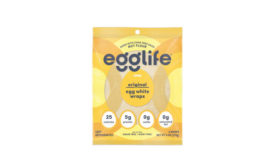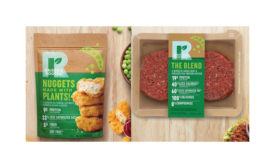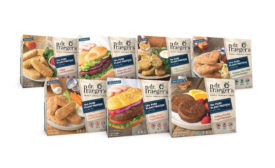Home » alternative protein
Articles Tagged with ''alternative protein''
New Peaks for Plant-Based Meats
We discuss alternative proteins with Stacie Waters, founder, CEO & president of High Peaks, and why the health halo surrounding this skyrocketing category should be elevated.
July 13, 2020
Research reveals majority of consumers willing to try synthetic, lab-based foods
One-quarter of consumers (25.2%) expressed concerns about the healthfulness of these products compared with conventionally produced food.
December 13, 2019
Study: Sustainability concerns, alternative proteins shift the dynamic for beef, pork menu offerings
44% of consumers who often eat pork say it’s important they eat pork that came from animals treated humanely.
February 11, 2019
Research reveals fresh meat, plant-based meat alternatives on the rise
81% of Millennials, 74% of Gen X, 66% of Boomers and 50% of Silents said protein content is extremely or very influential when making grocery store purchases.
March 1, 2018
Elevate your expertise in refrigerated and frozen foods with unparalleled insights and connections.
Get the latest industry updates tailored your way.
JOIN TODAY!Copyright ©2024. All Rights Reserved BNP Media.
Design, CMS, Hosting & Web Development :: ePublishing








